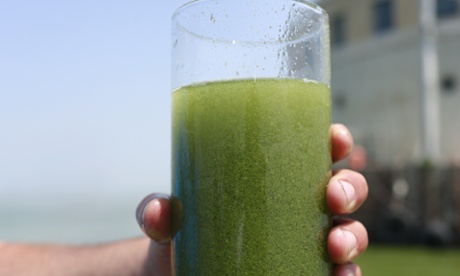By Emily Wirtz
 Just to piggy-back off of some of the other
environmentally-based posts on here, I figure it’s worth discussing why we seem
to think “the Earth is just a dead thing you can claim” (of course it was necessary to use a Pocahontas reference). We infect
our own environment with pesticides, noxious gases, and waste and then take the
good stuff from it—deforestation, city expansion, war destruction—and still
expect the world to be a-okay.
Just to piggy-back off of some of the other
environmentally-based posts on here, I figure it’s worth discussing why we seem
to think “the Earth is just a dead thing you can claim” (of course it was necessary to use a Pocahontas reference). We infect
our own environment with pesticides, noxious gases, and waste and then take the
good stuff from it—deforestation, city expansion, war destruction—and still
expect the world to be a-okay. [This is no joke. Residents of Toledo are presently warned not to drink the water since it comes out of the water source looking like the image to the left. The cause is an algae bloom in Lake Erie from phosphorus used in farming fertilizers. —Ed.]
[This is no joke. Residents of Toledo are presently warned not to drink the water since it comes out of the water source looking like the image to the left. The cause is an algae bloom in Lake Erie from phosphorus used in farming fertilizers. —Ed.] Vanessa Inaru Pastrano, “Inaru,” is a dedicated member of the United Confederation of Taino People, an elder of the Bohio Atabei Council and coordinator of the Peace and Dignity Journey’s Caribbean region. As an indigenous Native American, this Taino woman feels a strong connection to our environment: “Those trees, that grass, those insects all have a language of their own, and just because it’s not English or Spanish doesn’t mean we should ignore it.”
Inaru returned to Ohio to partake in Youngstown’s Taino Summer Solstice ceremony on June 21st, during which I had the opportunity to listen to her talk about her community involvement and environmental passions. Companies like Monsanto that advertise as “sustainable agriculture” yet use harmful pesticides and GMOs in their crop production, she explains, are a big part, but only one part, of the disintegration of Earth’s health. Sure, “the Earth is going through its natural processes,” she continued, “but we are escalating it.” Waste from ships, deforestation in the Amazon and bombing in the Middle East are a few other issues she feels are “destroying the lungs of the Earth.” We seem to think, she explains, that nothing’s wrong unless we can see it directly affecting us. We ignore the destruction of the Earth because media doesn’t cover it. “We have to think like an Indian. Everything has life and purpose and meaning. Everything on this planet is alive, and the Earth is dying, and we are destroying it.”
If nothing else, we need to emphasize education and an eco-friendly culture. Of course, “you can’t think reading a book is enough.” People learn by observing: “These ‘primitive people’—I don’t like that word. That word doesn’t exist in some cultures—knew something. You learn by observing and they observed the world and the environment. They had schools long before the universities in Europe.” She wholeheartedly believes that this “is what native culture brings to the table—that everything needs balance. Life is a balance. The average person only wants food on his table, a roof over his head and to live in peace.”
I believe we’ve got to use the knowledge we have and the information we’ve learned from these cultures that got it right—the ones in tune with what is right and natural. The younger generation—my generation—has “got to step up and do something if they want a future.” Maybe it’s not best to return to a “primitive” lifestyle, but I think Inaru definitely has a few things right. We need to start listening to these elders and to nature to fix this world. Of course reading a book isn’t enough. We’ve got to use it. If you ask me—and I’m sure Inaru would agree—we need to “roll in all the riches all around us and for once, never wonder what they’re worth.”
Emily Wirtz is a student at Ashland University and a member of the ACN Steering Committee.
No comments:
Post a Comment